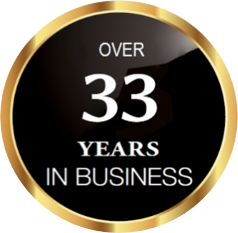Audio Recorder Miami Coral Gables Florida
Audio Recorder Miami Beach Coral Gables. Audio recording technology actually began before the phonograph, with scientific devices for studying sound waves. Later, sound recording was adapted to allow both recording and reproducing. These devices were capable of recording audios and other sounds long before the phonograph. This opened the door to the most familiar forms of sound recording; the technologies for recording and reproducing music.
History of Audio Recorders
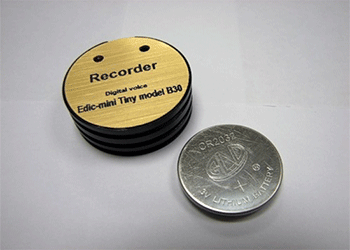
Audio Recorder Miami Coral Gables Florida
Telephone industry giant Western Electric had research laboratories (merged with the AT&T engineering department in 1925 to form Bell Telephone Laboratories) with material and human resources that no record company or independent inventor could match. They had the best microphone, a condenser type developed there in 1916 and greatly improved in 1922 and the best amplifiers and test equipment.
They had already patented an electromagnetic recorder in 1918, and in the early 1920s, they decided to intensively apply their hardware and expertise to developing two state-of-the-art systems for electronically recording and reproducing sound: one that employed conventional discs and another that recorded optically on motion picture film. Their engineers pioneered the use of mechanical analogs of electrical circuits and developed a superior “rubber line” recorder for cutting the groove into the wax master in the disc recording system.
In the 1920s, Phonofilm and other early motion picture sound systems employed optical recording technology, in which the audio signal was graphically recorded on photographic film. The amplitude variations comprising the signal were used to modulate a light source which was imaged onto the moving film through a narrow slit, allowing the signal to be photographed as variations in the density or width of a “soundtrack”.
This period also saw several other historic developments including the introduction of the first practical magnetic sound recording system, the magnetic wire recorder, which was based on the work of Danish inventor Valdemar Poulsen.
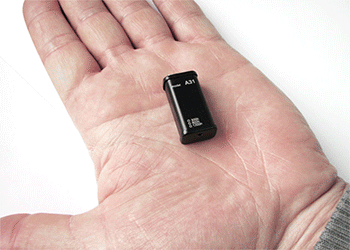
Audio Recorder Miami Coral Gables Florida
Magnetic wire recorders were effective, but the sound quality was poor, so between the wars they were primarily used for voice recording and marketed as business dictating machines. In 1924 a German engineer, Dr. Kurt Stille, developed the Poulsen wire recorder as a dictating machine. The following year, Ludwig Blattner began work that eventually produced the Blattnerphone, enhancing it to use steel tape instead of wire.
The BBC started using Blattner Phones in 1930 to record radio programs. In 1933 radio pioneer Guglielmo Marconi’s company purchased the rights to the Blattnerphone, and newly developed Marconi-Stille recorders were installed in the BBC’s Maida Vale Studios in March 1935.
The tape used in Blattner Phones and Marconi-Stille recorders was the same material used to make razor blades, and not surprisingly the fearsome Marconi-Stille recorders were considered so dangerous that technicians had to operate them from another room for safety.
Because of the high recording speeds required, they used enormous reels about one meter in diameter, and the thin tape frequently broke, sending jagged lengths of razor steel flying around the studio. The K1 Magnetophon was the first practical tape recorder, developed by AEG in Germany in 1935.
An important field of the invention during this period was the tape recorder. Magnetic tape recording uses an amplified electrical audio signal to generate analogous variations of the magnetic field produced by a tape head, which impresses corresponding variations of magnetization on the moving tape. In playback mode, the signal path is reversed, the tape head acting as a miniature electric generator as the varyingly magnetized tape passes over it.
The original solid steel ribbon was replaced by a much more practical coated paper tape, but acetate soon replaced paper as the standard tape base. Acetate has fairly low tensile strength and if very thin it will snap easily, so it was in turn eventually superseded by polyester.
This technology, the basis for almost all commercial recording from the 1950s to the 1980s, was developed in the 1930s by German audio engineers who also rediscovered the principle of AC biasing (first used in the 1920s for wire recorders), which dramatically improved the frequency response of tape recordings.
The technology was further improved just after World War II by American audio engineer John T. Mullin with backing from Bing Crosby Enterprises. Mullin’s pioneering recorders were modifications of captured German recorders. In the late 1940s, the Ampex company produced the first tape recorders commercially available in the US.
A typical Compact Cassette
Magnetic tape brought about sweeping changes in both radio and the recording industry. The sound could be recorded, erased and re-recorded on the same tape many times, sounds could be duplicated from tape to tape with only minor loss of quality, and recordings could now be very precisely edited by physically cutting the tape and rejoining it.
Within a few years of the introduction of the first commercial tape recorder—the Ampex 200 model, launched in 1948—American musician-inventor Les Paul had invented the first multitrack tape recorder, ushering in another technical revolution in the recording industry.
Tape made possible the first sound recordings totally created by electronic means, opening the way for the bold sonic experiments of the Musique Concrète school and avant-garde composers like Karlheinz Stockhausen, which in turn led to the innovative pop music recordings of artists such as Frank Zappa, The Beatles, and The Beach Boys.
The practice of audio recording has changed considerably over the years as technology has advanced. Choosing the right audio recorder depends largely on the user’s individual preferences and needs. This guide is designed to provide readers with clear information about the main types of audio recorders. It also describes the advantages, disadvantages, and applications of each type.
Digital recorders allow uploads and are very small and compact, but these devices are more expensive. Analog recorders are well suited for those on a budget, but buyers should be aware that their sound quality is inferior, and these devices make it necessary to acquire the appropriately sized cassette. Smartphone apps that act as audio recorders are convenient and inexpensive, but they have limited features.
This guide also considers the unique needs of various users who regularly rely on audio recorders, including private investigators, students, administrators and secretaries, authors, reporters, and transcriptionists. Digital audio recorders are very versatile and are suited to a wide range of users, particularly students, authors, private investigators, and administrators.
Analog audio recorders are often selected by authors, students, those on a budget, and those unfamiliar with digital technology. Audio recording software is typically more aligned with the needs of transcriptionists, authors, or tech-savvy individuals who want vocal system control.
Audio recording apps are another appropriate option for authors, students, and those who do not want to spend a lot of money on a more complex audio recording device.
Several different types of audio recorders are available for purchase, and each of these types is suited to specific, real-world applications. Budget, of course, will have a direct impact on the type of audio recorder chosen, but the intended use for the audio recorder will also influence the eventual purchasing decision significantly.
Digital audio recorders have a wide range of applications, but a quality model can be expensive. Although they are not suitable for those averse to digital technology, many people find them to be an essential tool for their work.
For the frugal and those who prefer older technologies, analog audio recorders might be the ideal choice. Audio recording software, depending on the program, is comparatively expensive, but it is useful in applications such as transcription because it can convert speech to text with ease. Audio recording apps are a viable option for those on a tight budget and who already have a smartphone.
Understanding the available types of audio recorders will help assess which type most appropriately suits any needs. To begin the selection process here is an overview of the audio recorder options on the market.
Some Applications of Audio Recorder
Private Investigators
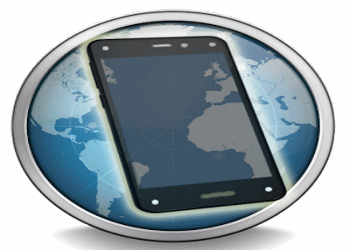
Audio Recorder Miami Beach Coral Gables.
Because of the sensitive and often secretive nature of a private investigator’s work, people in this profession need small, compact audio recording devices that can be easily concealed. It is also beneficial for a private investigator to have a machine that does not make any noise; obviously, a machine that clicks and whirs are not helpful because the distinct noises of a cassette tape spooling or buttons being depressed is decidedly conspicuous.
Instead, a private investigator would benefit most from a digital audio recorder, which is compact enough to provide easy concealment, potentially by simply being tucked into a pocket. The data from a digital audio recorder can be uploaded to a computer and stored either on a hard drive or in an online data vault. These storage mechanisms provide added security for a private investigator in the event that an original copy is deleted.
Business
Audio recording is commonplace, especially in highly regulated sectors of the economy where, for example, credit card payments are taken and organizations must adhere to PCI-DSS and the rules of the Financial Services Authority (FSA).
Just like any other data, audio recordings must be retained for compliance purposes. So, what audio data must be stored and how? And how should compliance for audio recording fit into a wider storage, backup and security strategy?
The two main challenges surrounding storage and backup for audio recording technology the first one is to store the right information securely and the second one is storing the logs pertaining to the audio information that you have stored.
So, if you look at storing the right information securely you obviously need to know what information to store, how to identify it, what not to store, how long you need to store it and how you dispose of it when you have finished with it and no longer have a legal requirement to keep it.
From the technology perspective the advice is to work with a supplier that will allow you to identify automatically some type of information during the audio recording or potentially would allow agents to stop the recording when, for example, a payment is carried out by credit card.
It’s not necessarily very easy to do. You may need to integrate with other solutions that would be hardware- or software-based and that will integrate with your communications systems.
The second thing is to look at solutions that allow you to secure access to the stored information. So, the same way as you would have a firewall to protect a server you would need to have a specific type of firewalling for your audio system. There are some very innovative new technologies, that will allow you to do that type of stuff.
The second aspect is storing the logs and access to the logs. If something goes wrong and for legal purposes, you need to go back and produce the audio recording you need to make sure the recording has not been tampered with, that the tracking information is accurate, that the integrity of the audio recording is beyond any doubt. And the same applies for e-discovery.
So, again it’s important to work with technology that allows you to tag the information, access the information in the right way and to make sure that information is kept completely secure and the integrity of the information is not questionable.
Laws regarding audio recording
In Miami or Coral gables, recording someone falls under the two-party consent rule in which both parties (the one filming and the one being filmed) understands and consents to the recording.
It is actually a felony if you record someone without their knowledge so you should be sure to understand the laws surrounding surveillance and voyeurism. You can be filmed in situations that you knowingly give up privacy like banks and retail stores. This law protects you in other areas such as your own home or even in public if your privacy has been breached. For example, just because you’re in public doesn’t mean someone can videotape under your skirt or record a private phone conversation between you and a spouse. You want to know the law and how it can protect you.
Under Florida law, in most circumstances all parties to the call must consent to the recording of the call in order to make it legal to record the call. This type of restrictive law is sometimes referred to as a “two-party consent” law but in reality, Florida has an “all-party consent” law in place. Chapter 934 of the Florida Statutes governs the Security of Communications and Surveillance Operations within the State of Florida.
Florida Statute § 934.03 is the State of Florida’s primary wiretapping law, which governs the interception and disclosure of wire, oral, or electronic communications. Florida Statute § 934.03(1) lists what acts are illegal, including but not limited to the use of any electronic device to intercept an oral communication or phone call. If you violate the statute, you are committing a crime.
Pursuant to Florida Statute § 934.03(4), the crime could be a third-degree felony, which is usually punishable by up to five years in state prison. In addition to the criminal penalties for illegally recording a call, you may also be liable for civil fines and penalties pursuant to Florida Statute § 934.10.
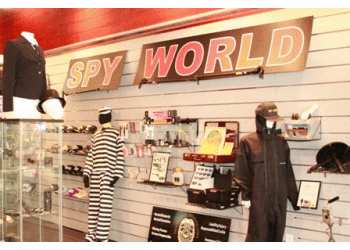
Audio Recorder Miami Beach Coral Gables.
So how can you avoid committing a crime if you want to record a call in Miami or Coral Gables city? Within Florida Statute § 934.03, there are many exceptions to the prohibition of recording or “intercepting” calls.
Most of the exceptions are contained within Florida Statute § 934.03(2). Of particular importance is Florida Statute § 934.03(2)(d) which provides as follows: “it is lawful under this section and ss. 934.04 – 934.09 for a person to intercept a wire, oral, or electronic communication when all parties to the communication have given prior consent to such interception.”
So in the case of a debt collector calling you, as long as you advise the person who calls you that you are also going to record the call and that by continuing to remain on the call they are consenting to the recording, the call can be recorded legally.
Under both Florida and federal law, in Miami and also Coral Gables it is almost always illegal to record a phone call or private conversation if you are not a party to that call or private conversation. It should be also noted that at this time under Florida law, law enforcement officers are also exempt from the prohibitions laid out in Florida Statute § 934.03(1).
[email protected] / [email protected]
Spy Store Miami & Spy Shop Miami
Miami Beach • Miami Gardens • Aventura • Coral Gables • Doral • Hialeah • Hialeah Gardens • Homestead • Kendall • Key Biscayne • Miami • Miami Lakes • North Miami • North Miami Beach • Opa-Locka • Palmetto Bay • Pinecrest • Pinecrest / Monroe Couty • South Miami • Miami Beach

